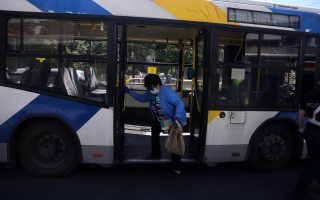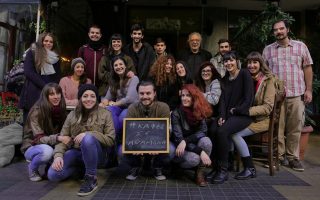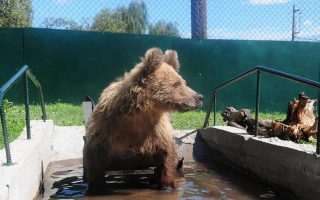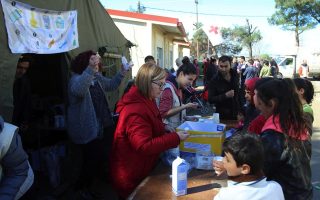Fostering, an often overlooked solution

During the difficult war years it was not uncommon for large families in Greece to welcome another child into their homes, and, indeed, even today, many older people still speak of those foster children with emotion. “Fostering was a widespread practice then,” says the president of the Mitera Center for the Protection of Children – Attica, social worker Sophia Konstantellia.
In modern-day Greece, however, the concept of fostering remains largely unknown to the general public, while many who are aware of the idea are wary since it comes with an unspecified end date. Most children living in public institutions around the country are ready for fostering but don’t fit the criteria for adoption. “As a rule there are biological parents who maintain contact with their child but are unable, for various reasons, to take responsibility for their upbringing as a whole.”
Mitera currently hosts 68 children, while many others are in accommodation across Attica: 40 are housed at Anarrotirio Pentelis, 32 at Paidopoli Alimou and 32 at Paidopoli Nea Smyrni, while 70 children with disabilities live in PIKPA Penteli. “Our foster families are currently caring for 196 children,” says Konstantellos, who considers foster care key to avoiding institutionalization, which is associated with a variety of developmental difficulties.
The time a child spends with its foster family is used to ascertain whether its biological parents can overcome their difficulties and take it back. In May 2016, Mitera launched the “Foster First Hug” scheme to find families or individuals willing to take a child for a short time so they do not have to live in an institution.
“We announced the program in December and already seven babies have found welcoming homes,” notes Konstantellos, who together with her partners briefs interested individuals every first Thursday of the month at their central offices. “Two hundred people came to the first meeting; many were young parents and exceptionally aware.”
The authorities assess the personality of the candidates: “They must have healthy incentives to raise a child.” Single people are not excluded, nor are wealthy applicants favored; moreover, the state makes a financial contribution to fostering. “Even in the 1960s they gave children for adoption to single women,” the president explained. The issue is to focus on the rights of the children, not the parents. “The priority in fostering is to cover the right of every child to grow up in a family, not to fill the emotional void of the childless.” Moreover, especially for fostering, families that already have children are probably more appropriate. “Playing is the best therapy for these children.”
Meanwhile, the process is expected to become faster thanks to donations from the Union of Greek Shipowners and the Stavros Niarchos Foundation to Mitera. Previously, only two social workers could be spared to examine fostering requests in Attica, but thanks to the Stavros Niarchos Foundation this figure has now risen to eight.
Young refugees
Some 250 interested parties had called the METAdrasi organization two days after an announcement that families were being sought to accommodate unaccompanied child refugees at the end of 2015. “After working closely with foreign agencies that have experience in hosting unaccompanied child refugees, we were convinced that placement in a family is the most appropriate solution,” says Laura Pappas, president of METAdrasi. “We looked initially for families who came from the same countries or spoke the same languages as the minors,” she said. “Over time, however, we found that they settled in very well with Greek families, even when there was no common language.” The results are more than encouraging.
To date, more than 20 refugee children have found a second home in Greece. “An essential prerequisite is for all family members to agree unanimously that want they want this cohabitation,” concludes Pappas. (See bit.ly/oikogenies for more.)
“I would like him to stay with us forever,” is what Maria’s 7-year-old son often says about the 12-year-old Afghan boy they are hosting. The children talk to each other in Greek. In the morning he goes to school, he plays football in the afternoon and once a week he meets with members of METAdrasis’s Network of Guardians for Unaccompanied Minors. “My two sons accept that he is different; they are not jealous of him, quite the opposite – they look up to him,” says Maria, who will host the child for seven more months and says she is ready to accept another such arrangement in the future. “I think that once you have become a biological parent, you are a parent for all the children of the world,” she says. Recently unemployed, she now has time to care for the three children.
Accommodating refugee children often provides the host families with life lessons. “We take so many things for granted, like swimming in the sea. I never stopped to think that many children from landlocked countries have never had the opportunity,” says Maria.
“Experiential learning is the most effective: My sons have mastered concepts and values that I took 40 years to learn.”





